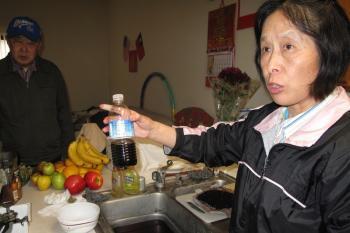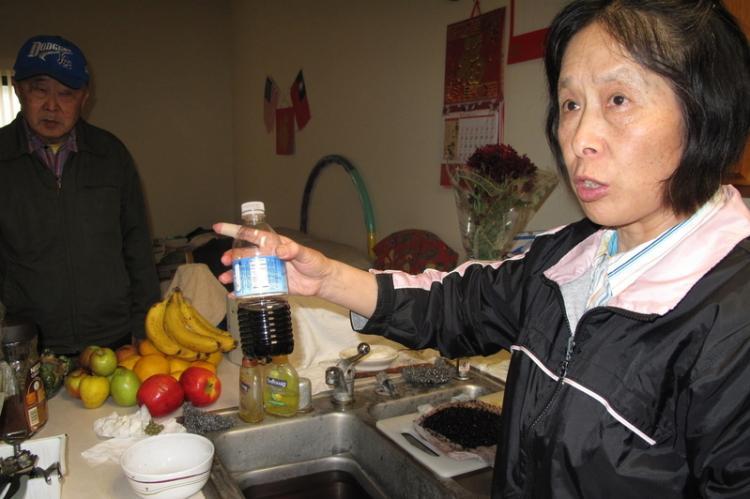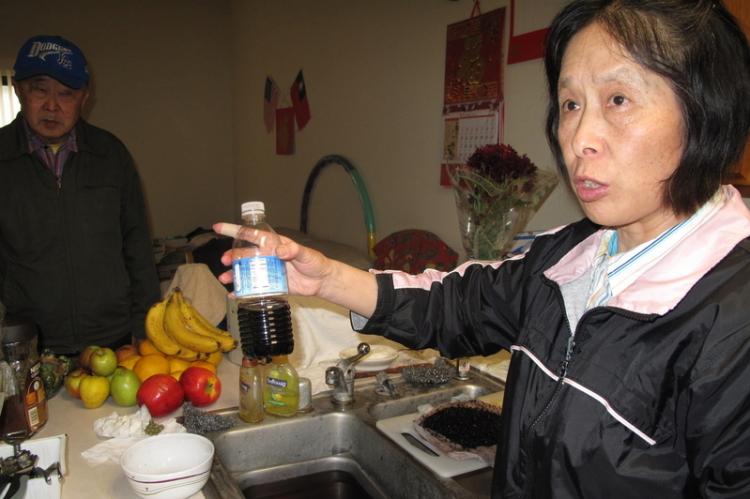Consumer Complains Ink-Like Liquid Appeared When Black Sesame Seeds Were Soaked
A Los Angeles couple is upset about a bag of black sesame seeds that they purchased that, when soaked, turned the water black.

Ms. Shizhong Wang, from El Monte, demonstrates ink-like liquid from soaking the black sesame seeds. (See liquid inside the water bottle). Fei Liu/Epoch Times
|Updated:

